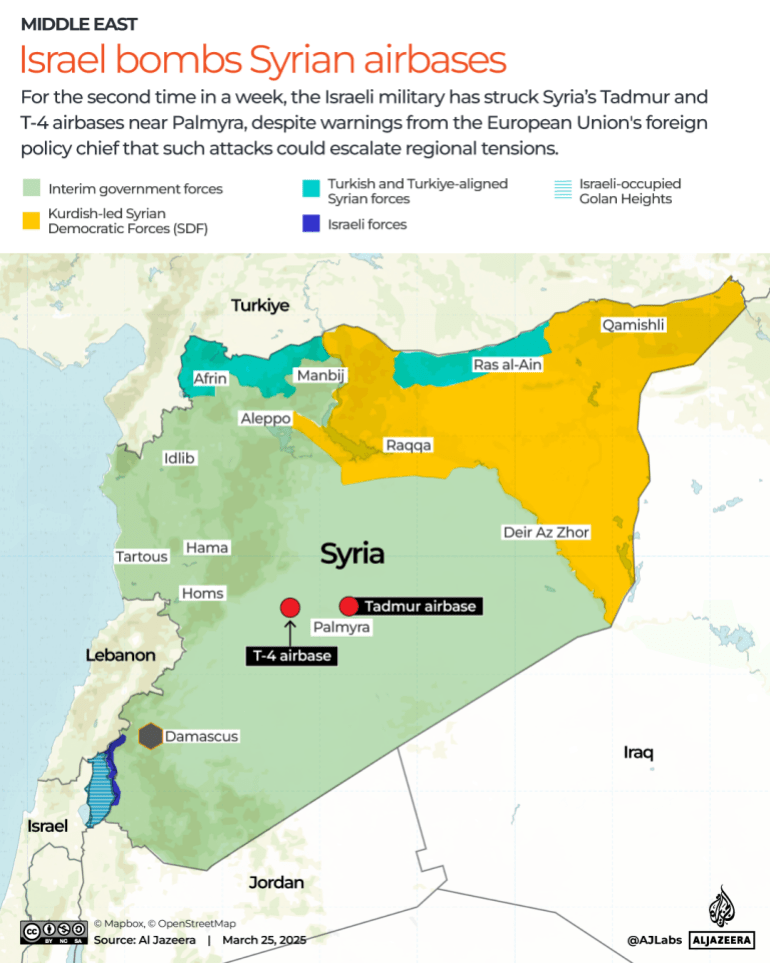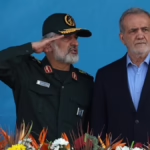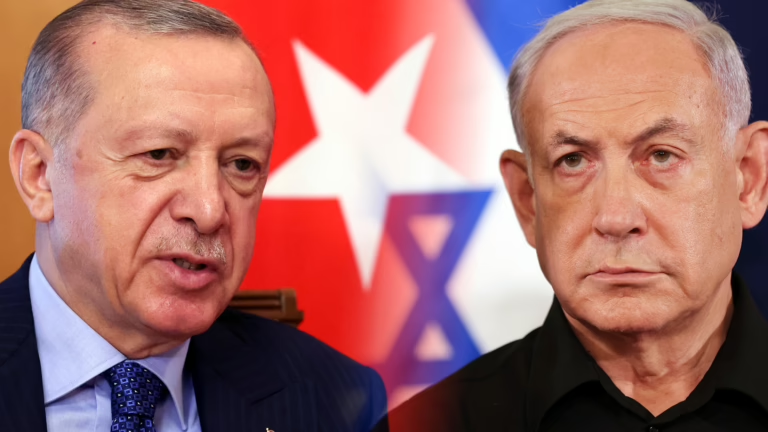Istanbul, Turkiye – In the wake of Israel’s recent airstrikes targeting Qatar-a key US ally in the Gulf region designated as a “major non-NATO ally”-attention among pro-Israel voices swiftly turned toward Turkiye as a potential next focus.
In Washington, Michael Rubin, a senior fellow at the conservative American Enterprise Institute, speculated that Turkiye might be Israel’s forthcoming target, cautioning that Ankara should not assume its NATO membership guarantees protection.
On social media platforms, Israeli academic and political commentator Meir Masri remarked, “Today Qatar, tomorrow Turkey.” Ankara responded with unusually strong rhetoric; a senior adviser to President Recep Tayyip Erdogan retorted, “To the Zionist Israel’s dog … soon the world will find peace once you are erased from the map.”
For several months, pro-Israel media have intensified their hostile narrative against Turkiye, labeling it as “Israel’s most formidable adversary.”
Israeli analysts have also depicted Turkiye’s strategic activities in the eastern Mediterranean as a “significant threat” and its involvement in Syria’s post-conflict reconstruction as an emerging “regional hazard.”
Amid escalating Israeli military actions and the ongoing conflict in Gaza, Turkish Foreign Minister Hakan Fidan responded in August by halting economic and trade relations with Israel.
“In Ankara, this anti-Turkish discourse is taken with utmost seriousness, as Israel is perceived to be pursuing regional dominance,” explained Omer Ozkizilcik, a non-resident fellow at the Atlantic Council, in an interview with Al Jazeera.
“Turkiye increasingly views Israeli aggression as boundless and backed by unwavering American support,” Ozkizilcik added.
The recent strikes on Qatar have likely deepened Ankara’s skepticism regarding US security assurances under NATO. Despite Doha’s privileged status with Washington, Israel’s actions faced no significant American opposition, raising doubts about whether the US would treat an attack on Turkiye as an attack on itself, as NATO’s charter mandates.
Unlike many Arab nations, “Turkiye has long recognized that it cannot depend on the US or NATO to safeguard its national security interests,” Ozkizilcik noted.
Israeli Prime Minister Benjamin Netanyahu has openly embraced his country’s ambitions for regional expansion. When questioned in August about the concept of a “Greater Israel,” he affirmed, “Absolutely.”
For Ankara, such declarations are more than rhetoric-they represent an Israeli vision of supremacy that could directly conflict with Turkiye’s own regional aspirations.
On Sunday, Foreign Minister Fidan told Al Jazeera that Israel’s “Greater Israel” ideology-which some religious Zionists extend to include parts of Syria, Lebanon, Egypt, and Jordan-aims to “keep regional countries weak, ineffective, and, above all, divided.”
In recent weeks, Israel has not only continued its devastating campaign in Gaza and near-daily incursions in the occupied West Bank but has also launched attacks in Yemen and Syria, and faces allegations of striking a Gaza aid flotilla near Tunisia.
Within this context, Turkiye and Israel are entrenched in a “geopolitical rivalry,” according to Ozkizilcik, who pointed out that Israel’s maneuvers contradict what he describes as Turkiye’s preference for strong, centralized states rather than fragmented ones where multiple factions wield power.
Striving for Regional Dominance
The perception that Israel seeks to establish itself as the dominant regional power was reinforced in July when Tom Barrack, the US ambassador to Turkiye and special envoy to Syria, candidly acknowledged that Israel favors a divided and fragmented Syria.
“Strong nation-states, particularly Arab ones, are perceived as threats to Israel,” Barrack stated.
The implication for Ankara was unmistakable: Israel views regional hegemony as essential to its security.
Israel’s military actions support this view. Since December 8, following former Syrian President Bashar al-Assad’s relocation to Moscow, Israel has conducted dozens of airstrikes in Syria and seized territory amid the ensuing chaos.
In 2024, Israel decimated much of Hezbollah’s leadership and continues to maintain a presence in parts of Lebanon despite ceasefire agreements, aiming to weaken or dismantle the group.
In June, Israel launched an assault on Iran, igniting a 12-day conflict targeting Iranian military and nuclear sites, resulting in the deaths of senior commanders and nuclear scientists, and drawing in the United States.
These strikes sought not only to degrade Tehran’s defense and nuclear capabilities but also to encourage Washington to pursue regime change, targeting one of Israel’s most formidable regional adversaries.
Israel now appears to regard Turkiye as a potential obstacle to its regional dominance, which explains its firm opposition to Ankara establishing new military bases in Syria that “could threaten Israel,” as Netanyahu has previously asserted.
“The initial flashpoint in Turkish-Israeli tensions will likely emerge on the Syrian battlefield, both on land and in the air,” warned Cem Gurdeniz, a retired Turkish admiral and the architect of the Blue Homeland doctrine-a maritime strategy advocating Turkiye’s assertion of sovereignty and protection of its interests across the Aegean, Eastern Mediterranean, and Black Sea.
“Simultaneously, Israel’s expanding military and intelligence presence in Cyprus, closely coordinated with Greece and the Greek Cypriot administration under US guidance, is viewed in Ankara as a calculated effort to undermine and contain the Blue Homeland,” Gurdeniz told Al Jazeera.
“From Ankara’s perspective, this is not a defensive move by Israel but an offensive encirclement strategy threatening both Turkish maritime freedom and the security of the Turkish Cypriot community,” he added, referencing Turkiye’s support for the self-declared Turkish Republic of Northern Cyprus, recognized only by Turkiye, in contrast to the Greek Cypriot-controlled Republic of Cyprus.
The ongoing division of Cyprus remains a significant point of contention among Turkiye, Greece, and Cyprus.
Recent reports that Cyprus acquired Israeli air-defense systems are expected to heighten Ankara’s concerns.
Meanwhile, in Syria, Israel has openly stated that it envisions a “federal” Syria with various autonomous regions as the only form of stability, according to Israeli Foreign Minister Gideon Sa’ar during a February meeting with European leaders in Brussels.
Conversely, Turkiye supports the new Syrian government’s insistence on a centralized, unified state.
Currently, the tensions between Israel and Turkiye remain “contained,” according to Gokhan Cinkara, director of the Global and Regional Studies Centre at Necmettin Erbakan University in Turkiye.
“The most precarious scenario for Turkiye would be an uncontrolled eruption of intergroup violence in Syria. Therefore, Ankara is likely advising the Syrian administration to exercise pragmatic restraint,” Cinkara told Al Jazeera.
“Given the fragility of Syria’s security forces, any outbreak of conflict risks escalating into prolonged ethnic and sectarian strife. Thus, in the short term, maintaining a unitary state model appears challenging,” he added.
Boundaries and Potential Flashpoints
Netanyahu advocates for a “Balkanized” Syria, partitioned along ethnic and religious lines, and calls for the demilitarization of southern Syria, predominantly inhabited by the Druze community.
Such a move could ignite demands from other groups, including Kurds and Alawites, for their own autonomous arrangements, potentially destabilizing the region further.
“Turkiye has explicit red lines in Syria,” stated Murat Yesiltas, director of foreign policy research at SETA, a think tank closely linked to the Turkish government.
“The US and Israel’s efforts to reshape the regional order pose significant risks, exacerbating fragmentation across the Middle East,” Yesiltas told Al Jazeera.
In March, Israel’s leading security think tank, the Institute for National Security Studies (INSS), cautioned against the emerging peace process between Turkiye and the Kurdistan Workers’ Party (PKK), which seeks to end a four-decade conflict that has claimed over 40,000 lives.

The INSS warned that this peace initiative could “undermine Kurdish autonomy in Syria” and enable Ankara to “expand its influence in southern Syria, thereby increasing threats to Israeli operational freedom.”
Israel’s Defense Minister Israel Katz has declared that the newly occupied territories in southern Syria will be held indefinitely.
As Turkiye explored potential military bases in Syria’s Homs province and the main airport in Hama province in coordination with Damascus, Israel targeted these locations with airstrikes.
“If Tel Aviv continues on this trajectory, conflict between Ankara and Tel Aviv will become unavoidable. Turkiye cannot tolerate policies that perpetuate instability along its southern border,” Yesiltas warned.
Nonetheless, a full-scale confrontation is “not inevitable,” as both nations are aware of the high costs involved, especially given their economic ties, according to Andreas Krieg, associate professor of security studies at King’s College London.
“Israel’s threat to Turkiye is less about conventional warfare and more about indirect actions targeting Turkish interests,” Krieg explained, referring to Ankara’s stakes in Syria, the Eastern Mediterranean, and the South Caucasus.
With Washington’s robust and seemingly unconditional backing of Netanyahu’s regional ambitions, Krieg suggests that Ankara’s best strategy is to “enhance strategic deterrence through expanded air defense, missile capabilities, and intelligence sharing,” while forging regional alliances with Qatar, Jordan, and Iraq, and maintaining diplomatic channels with the US to “avoid complete strategic isolation.”
“Ankara must prepare for future conflicts to arise in the ‘grey zone’-through covert operations, airstrikes, and proxy engagements-rather than overt military confrontations or diplomatic exchanges,” he concluded.

















